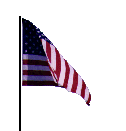
Army Warrant Officer Definitions - text courtesy of Warrant Officers Heritage Foundation -
Army Field Manual 22-100, Army Leadership, 31 August 1999, explains the role of Army Warrant Officers as:
Warrant officers are highly specialized, single-track specialty officers who receive their authority from the Secretary of the Army upon their initial appointment. However, Title 10 U.S.C. authorizes the commissioning of warrant officers (WO1) upon promotion to chief warrant officer (CW2). These commissioned warrant officers are direct representatives of the President of the United States. They derive their authority from the same source as commissioned officers but remain specialists, in contrast to commissioned officers, who are generalists. Warrant officers can and do command detachments, units, activities, and vessels as well as lead, coach, train, and counsel subordinates. As leaders and technical experts, they provide valuable skills, guidance, and expertise to commanders and organizations in their particular field.
Department of the Army Pamphlet 600-11, Warrant Officer Professional Development, dated 30 December 1996, defines an Army Warrant Officer as:
An officer appointed by warrant by the Secretary of the Army, based upon a sound level of technical and tactical competence. The warrant officer is the highly specialized expert and trainer who, by gaining progressive levels of expertise and leadership, operates, maintains, administers, and manages the Army’s equipment, support activities, or technical systems for an entire career.
Department of the Army Pamphlet 600-3, Commissioned Officer Professional Development and Career Management, 14 October 2005, provides a new Warrant Officer Definition and Warrant Officer Definitions for each Warrant Officer Rank. This Pamphlet includes the career development of Warrant Officers, thus superseding Department of the Army Pamphlet 600-11. The new definitions are as follows:
"3–5. Warrant officer definitions
The Army WO is a self–aware and adaptive technical expert, combat leader, trainer, and advisor. Through progressive levels of expertise in assignments, training, and education, the WO administers, manages, maintains, operates, and integrates Army systems and equipment across the full spectrum of Army operations. Warrant Officers are innovative integrators of emerging technologies, dynamic teachers, confident warfighters, and developers of specialized teams of soldiers. They support a wide range of Army missions throughout their career. Warrant officers in the Army are accessed with specific levels of technical ability. They refine their technical expertise and develop their leadership and management skills through tiered progressive assignment and education. The following are specific characteristics and responsibilities of the separate, successive WO grades.
a. Warrant officer one. An officer appointed by warrant with the requisite authority pursuant to assignment level and position given by the Secretary of the Army. WO1s are basic level, technically and tactically focused officers who perform the primary duties of technical leader, trainer, operator, manager, maintainer, sustainer, and advisor. They also perform any other branch-related duties assigned to them. They also provide direction, guidance, resources, assistance, and supervision necessary for subordinates to perform their duties. WO1s have specific responsibility for accomplishing the missions and tasks assigned to them and, if assigned as a commander, the collective or organizational responsibility for how well their command performs its mission. WO1s primarily support levels of operations from team or detachment through battalion, requiring interaction with all soldier cohorts and primary staff. They provide leader development, mentorship, and counsel to enlisted soldiers and NCOs.
b. Chief warrant officer two.CW2s are commissioned officers with the requisite authority pursuant to assignment level and position as given by the President of the U.S.. CW2s are intermediate level technical and tactical experts who perform the primary duties of technical leader, trainer, operator, manager, maintainer, sustainer, and advisor. They also perform any other branch-related duties assigned to them. They provide direction, guidance, resources, assistance, and supervision necessary for subordinates to perform their duties. They have specific responsibility for accomplishing the missions and tasks assigned to them and, if assigned as a commander, the collective or organizational responsibility for how well their command performs its mission. CW2s primarily support levels of operations from team or detachment through battalion, requiring interaction with all soldier cohorts and primary staff. They provide leader development, mentorship, advice, and counsel to NCOs, other WOs and company-grade branch officers.
c. Chief warrant officer three.CW3s are commissioned officers with the requisite authority pursuant to assignment level and position as given by the President of the U.S.. CW3s are advanced-level technical and tactical experts who perform the primary duties of technical leader, trainer, operator, manager, maintainer, sustainer, integrator, and advisor. They also perform any other branch-related duties assigned to them. They provide direction, guidance, resources, assistance, and supervision necessary for subordinates to perform their duties. CW3s have specific responsibility for accomplishing the missions and tasks assigned to them and, if assigned as a commander, the collective or organizational responsibility for how well their command performs its mission. CW3s primarily support levels of operations from team or detachment through brigade, requiring interaction with all soldier cohorts and primary staff. They provide leader development, mentorship, advice, and counsel to NCOs, other WOs and branch officers. CW3s advise commanders on WO issues.
d. Chief warrant officer four. CW4s are commissioned officers with the requisite authority pursuant to assignment level and position as given by the President of the U.S.. CW4s are senior-level technical and tactical experts who perform the primary duties of technical leader, manager, maintainer, sustainer, integrator and advisor. They also perform any other branch-related duties assigned to them. They provide direction, guidance, resources, assistance, and supervision necessary for subordinates to perform their duties. CW4s have specific responsibility for accomplishing the missions and tasks assigned to them and, if assigned as a commander, the collective or organizational responsibility for how well their command performs its mission. They primarily support battalion, brigade, division, corps, and echelons above corps operations. They must interact with NCOs, other officers, primary staff, and special staff. CW4s primarily provide leader development, mentorship, advice, and counsel to NCOs, other WOs and branch officers. They have special mentorship responsibilities for other WOs and provide essential advice to commanders on WO issues.
e. Chief warrant officer five. CW5s are commissioned officers with the requisite authority pursuant to assignment level and position as given by the President of the U.S.. CW5s are master-level technical and tactical experts who perform the primary duties of technical leader, manager, integrator, advisor, or any other particular duty prescribed by branch. They provide direction, guidance, resources, assistance, and supervision necessary for subordinates to perform their duties. CW5s have specific responsibility for accomplishing the missions and tasks assigned to them. CW5s primarily support brigade, division, corps, echelons above corps, and major command operations. They must interact with NCOs, other officers, primary staff and special staff. They provide leader development, mentorship, advice, and counsel to WOs and branch officers. CW5s have special WO leadership and representation responsibilities within their respective commands. They provide essential advice to commanders on WO issues.
Para. 3-5, Department of the Army Pamphlet 600-3, 14 October 2005)
Warrant Officer Branch Information Awards

USAWOA Community Affairs Award for Sustaining Programs for 2006-
Fort Lowell-Apache Chapter JROTC program support

USAWOA Website of the Year Award 2005
Fort Lowell-Apache Chapter

Warrant Officer Heritage Foundation
"WO Heritage Supporter"
2008